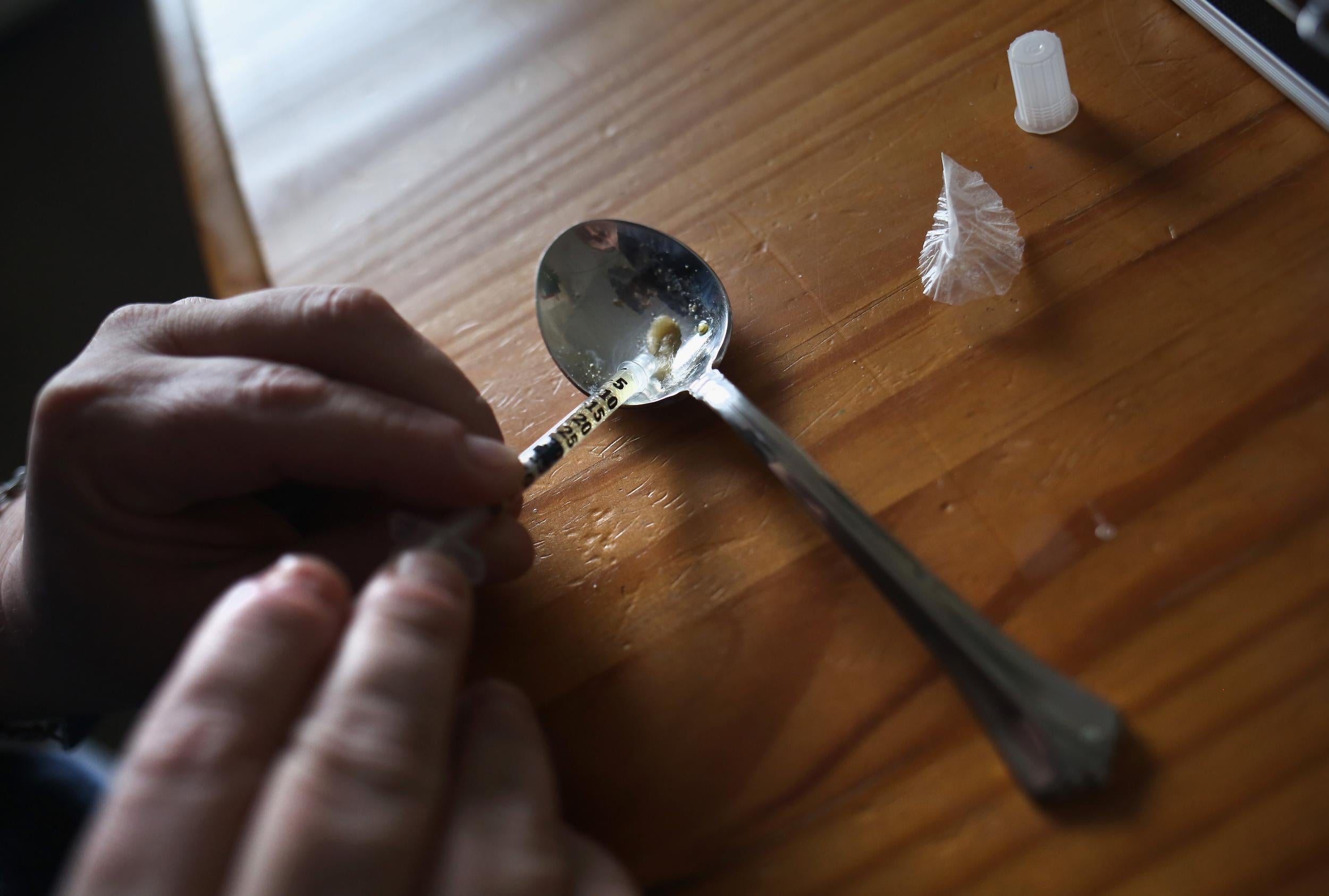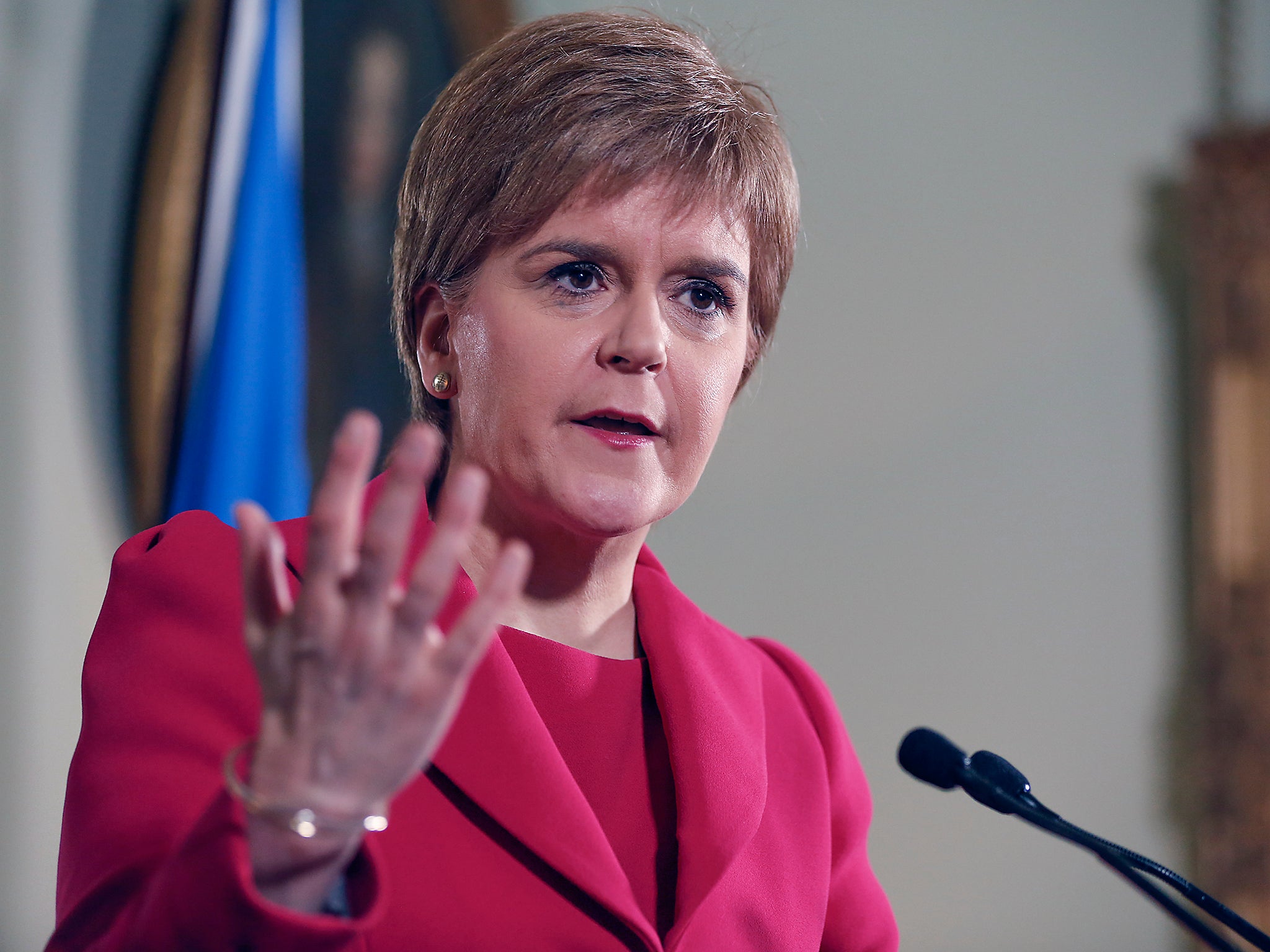Scotland drug deaths still worst in Europe as number rises to record high
The number of drug deaths has risen for the seventh year in a row

Your support helps us to tell the story
From reproductive rights to climate change to Big Tech, The Independent is on the ground when the story is developing. Whether it's investigating the financials of Elon Musk's pro-Trump PAC or producing our latest documentary, 'The A Word', which shines a light on the American women fighting for reproductive rights, we know how important it is to parse out the facts from the messaging.
At such a critical moment in US history, we need reporters on the ground. Your donation allows us to keep sending journalists to speak to both sides of the story.
The Independent is trusted by Americans across the entire political spectrum. And unlike many other quality news outlets, we choose not to lock Americans out of our reporting and analysis with paywalls. We believe quality journalism should be available to everyone, paid for by those who can afford it.
Your support makes all the difference.Drug-related deaths in Scotland rose to a record 1,339 last year, the seventh time in a row that the number has risen.
The newly-released figure for 2020 shows 75 more deaths than the previous year, when 1,264 people lost their lives.
Last year’s figure is also the highest number of drug-related deaths since records began in 1996.
Scotland continues to have the worst drug death rate in Europe, with 21.2 deaths per 1,000 of the population.
This is more than three-and-a-half times higher than England and Wales.
Most of the fatalities – 1,192 of them – were related to use of opioids such as heroin, morphine, methadone, codeine and dihydrocodeine.
Benzodiazepines were implicated in 974 deaths. “Street” sedatives such as etizolam, which is more potent than Valium, were found to have contributed to 806 benzodiazepine-related fatalities. Some deaths involved more than one benzodiazepine, or a mixture of prescription and street tablets.
Anticonvulsant drugs gabapentin or pregabalin were present in the bodies of 502 people who died, and cocaine in 459.
Alcohol was implicated in 173 deaths, ecstasy-type drugs in 40 drug-related deaths, and amphetamines in 60 deaths.
Glasgow was again found to be the worst area for people struggling with addiction, with 291 dying there last year.
Greater Glasgow and Clyde had the highest rate of all Scottish health board areas at 30.8 deaths per 100,000 people, followed by Ayrshire and Arran and Tayside with rates of 27.2 and 25.7 respectively.
Men were almost three times as likely to die of drug misuse than women, the figures also show, and people in the poorest areas were 18 times as likely to die than those in the least-deprived areas.
Almost two-thirds of all drug-related deaths were people between ages 35 and 54.
The rise in the number of drug-related deaths over the past 25 years has been the steepest since 2013. The SNP had a majority government in Scotland between 2011 and 2016, after which they governed with a minority rule.
In response to the figures, Scotland’s First Minister Nicola Sturgeon said the number of lives lost “is unacceptable, each one a human tragedy” – and added that reform of laws regarding drugs is not a devolved matter.
The SNP leader said: “Today, my thoughts are with every family who has lost a loved one. I am sorry for the loss you have suffered.”

Ms Sturgeon tweeted: “The Scottish government does not shirk the responsibility and we are determined to make changes that will save lives.
“These 2020 figures (though no less shameful because of it) predate actions set out at start of year.
“We now have a dedicated drugs minister in Angela Constance, a substantial funding commitment and action underway to eg ensure faster access to community support, treatment and rehab.
“We will also continue to argue for reform of drugs law, which is not currently within our power.”
In April, Ms Sturgeon had admitted that the SNP government “took our eye off the ball” on drug deaths and pledged £250 million over the next five years for rehabilitation and community services.
Following the publication of the recent figures, Scottish Conservatives leader Douglas Ross said: “This is not a day for political posturing but it is a simple fact that the government’s small steps are not cutting it.
“The crisis is getting worse and spiralling out of control.
“We need a united national effort to make the drastic changes necessary to overhaul the broken system.
“The Scottish Conservatives are bringing forward a Right to Recovery Bill to guarantee in law that everyone who needs treatment can get it.
“This proposal has the backing of frontline groups and experts across the political spectrum. SNP MSPs are reportedly on board privately. We only need the government to wake up, stop stalling and support it.”

Scottish Labour leader Anas Sarwar said that the new figures “should shame Scotland”.
He added: “It should never have been allowed to get to this point ... We can and must act now, by investing in a range of services and delivering truly person-centred treatment and recovery.”
The Scottish Drugs Forum (SDF) has attributed Scotland’s worsening drugs misuse problem to poverty.
It has said: “Scotland’s drug problem has its roots in the harsh climate of 1980s deindustrialisation and the economic and social impact in the subsequent decades.
“Other countries chose a more interventionist approach by which the state created alternative employment and opportunity during these changes. This was not the policy in the UK.
“The consequence of this ongoing approach is a large and more entrenched drug problem nationally.”
Join our commenting forum
Join thought-provoking conversations, follow other Independent readers and see their replies
Comments